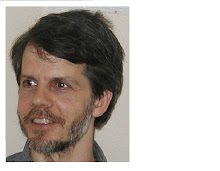Our towns college, the University of Michigan, recently dedicated a semester to "Understanding Race" part of the semester program was an exhibit at the university's Natural History Museum about "Understanding Race." This exhibit and the theme semester it is a part of are both commendable. We need more conversations about race, I recently saw the exhibit as part of a group I am involved with. I was not able to make the follow up discussion so I put some of my thoughts in writing and to make those thoughts public I am sharing them here. If you haven't seen the exhibit these comments may be less relevant.
I would like to share my honest impression of the exhibit.
It was a
nice exhibit covering a variety of relevant issues. However I felt that
it had some limitations. I wont claim that I read and watched
everything in the exhibit, but I was there for an hour and a half and
the subject is engaging to me so I was trying to take in as much as I
could.
For me little of the information presented was novel or
new, I know race is a biologically inaccurate construct. I am familiar
with the disgraceful history of discrimination and the bulk of the
historical specifics were familiar. I appreciate that race identity
issues get complex.
Beyond the lack of new information or
perspectives I felt that the exhibit really fell short on the politics
of racism. I did not see any portrale of the very real and ongoing
racist attitudes that can span from out right race hatred to the almost
universal race bias (for an experience of you own level of bias check
out https://implicit.harvard.edu/implicit/demo/). Neither did I see much
on institutional racism. I did not see the wall of statistics that
should have been there about the discrimination of the criminal justice
system.
Racism as I understand it is not just discrimination ,
but discrimination plus power. unless we can talk about racism we can't
understand race, and racism is about power. There was a display about
the 2008 elections, but no mention of how elements of the Tea Party were
a backlash to a "bi-racial" president.
Education is good but it is best when it can inform action. Two displays
that I felt were important to [our group] . . . .
were: 1) the stacks of money representing assets of different racial
groups. I want to point out it was assets, not income. . . . and 2) the local exhibit pointed out that
our neighbor Ypsilanti is a food desert. I don't know what we can do
about this but I think it is relevant to [us].
Monday, July 29, 2013
Subscribe to:
Post Comments (Atom)

No comments:
Post a Comment